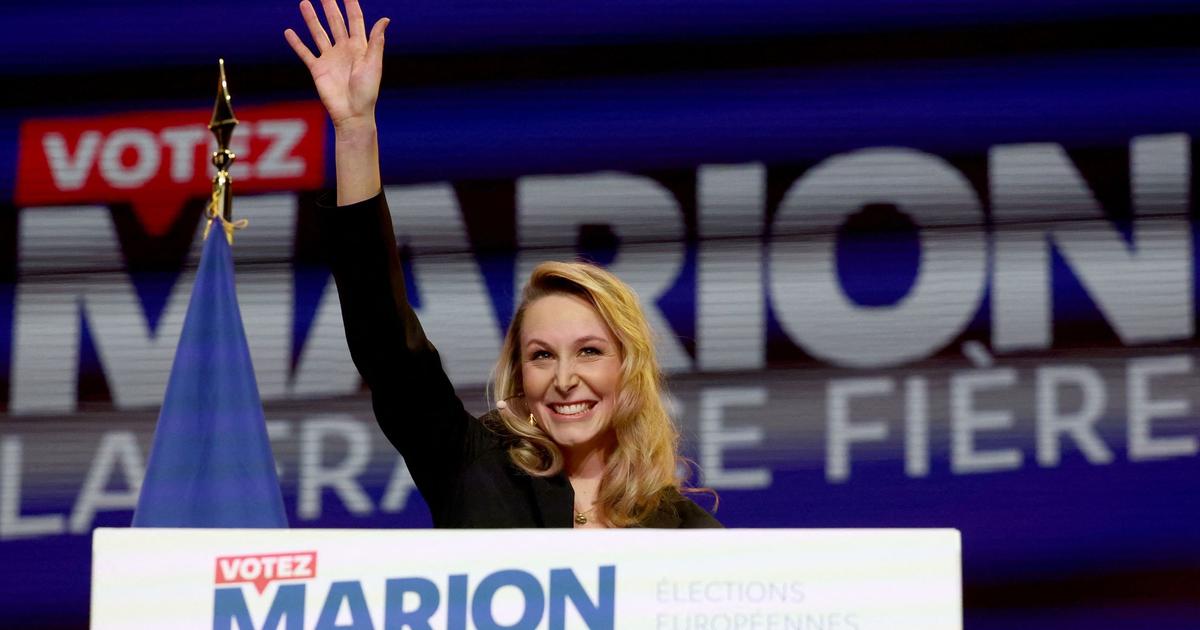Icon: enlarge
Photo: iStockphoto / Getty Images
Where does this masochistic enthusiasm for seeing any form of regulation as a prohibition come from?
I ask that quite unpolemically.
My aim is not to become an advocate of asceticism and to demand that everyone should allow themselves to be banned more.
I am just amazed by the desire to see almost everything that is discussed as a meaningful social rule immediately as a prohibition.
To make it more specific with an example: Today nobody perceives the obligation to wear a seat belt, i.e. the need to be buckled for personal protection, as a restriction of freedom or as a prohibition of being unbuckled - right?
So where does this reflex of some participants in the discourse come from to immediately understand equally reasonable proposals for regulation as a prohibition?
During the conversation between the transformation researcher Maja Göpel and the journalist Jörg Thadeusz on his RBB show "Talk from Berlin", a somewhat heated exchange occurred last week.
Samira El Ouassil Right Arrow
Photo: Stefan Klüter
Born in Munich in 1984, is an actress and author.
In 2016 her book "The 100 most important things" (with Timon Kaleyta and Martin Schlesinger) was published by Hatje Cantz Verlag.
In 2009 she was candidate for chancellor of the PARTY, which at that time was not admitted to the general election.
She was recently awarded the Bert Donnepp Prize for media journalism for her media critical column "Wochenschau" (uebermedien.de).
Göpel tried to convince the host of the sensibility of exclusion criteria for harmful products.
In the case of baby milk, for example, standards are also used that regulate production - so why not also apply to environmentally harmful SUVs?
Thadeusz then summarized Göpel's plea for quality criteria as follows:
»What they would like to have imagined, what they would have liked to consider, would be that you go over and say:> Dear people, you don't want to see it on your own, (...) you buy such a thing (SUV), that is pointless, you don't need it because I tell you that you don't need it, it has side effects that you cannot overlook, that's why I prohibit the state.
Then it was spoken again, the V word.
And later on in the program, Göpel stated that she would not let Thadeusz put a "ban regime" in her mouth.
Is every red light a ban on movement?
Prohibition regime - a powerful word, the implications of which the Greens (have to) work on publicly for years.
The tabloid press repeatedly illustrates how one can successfully create mood for days with alleged bans, for example when it comes to schnitzel, carnival costumes or firecrackers.
This huge stop sign of prohibition rhetoric effectively spreads panic of authoritarian paternalism.
But if you take a closer look at the requirements, you can see that we are often only talking about traffic lights, where we should stop at red.
Is every red light a ban on movement?
The way the word “ban” is used in political discourse about Covid-19, climate or language, it is usually a category error.
At least if it means the restriction of a freedom and deduces from this that every restriction must automatically be a prohibition.
This derivation, in turn, is based on a premise that apparently defines freedom as the absence of any order.
However, this definition of freedom and the resulting criticism of the prohibition completely excludes the question of the relationship between one's own being and that of others.
It suppresses the fact that the individual freedom of each and every individual in a society only functions relationally and interdependently.
Freedom cannot be thought of as the lack of consequences for one's own decisions, which is why one's own responsibility cannot be removed from the equation that characterizes one's own freedom.
Even if the biggest fans of the word “ban” argue exactly that.
More opinion
Corona measures: We are what we allow ourselves A comment by Stefan Kuzmany
Green Populism: Give the Monkeys Sugar! A column by Nikolaus Blome
Sure, because it works too well as a polemic panic trigger in political and ecological discourse.
The fact that Göpel reacted somewhat annoyed to Thadeusz is certainly due to the notorious attempt to label ecologists, environmental researchers and activists as ban administrators who want to take away everything that makes happy.
The alleged bans are intended to bring about changes in society as a whole that would improve the welfare of many.
But in the social state of general interconnectedness of individuals, the changes are ironically perceived as an affront to the freely consuming self.
It fears that new regulations will restrict its economic or social self-validation.
You are the "You in YouTube and the I in IPhone"
In mid-October, the French technology philosopher Eric Sadin published an essay entitled "The Era of the Individual Tyrant: The End of a Common World" (
L'ère de l'individu tyran: La fin d'un monde commun
).
In it, he reflects on how the question of individual freedom has developed into a technologically rewarded hyper-individuality with the beginning of the Enlightenment and how »the emergence of a new state of the contemporary individual« was achieved by using the »You on YouTube and the I in IPhone «Is.
In this maximal individualization, any form of societal boundary, any idea of a utilitarian order can of course easily be sold as repression.
The magic word »prohibition« is the most effective one-word campaign against social transformation.
Because of this economically promoted "individual tyranny" one could assume that the improvement of the world has also become an apparently individual task.
Each and every individual would just have to behave responsibly.
And in the area of climate protection or fighting pandemics, it was enough to simply be a #special hero (see the federal government's campaign).
In addition to this relinquishing of responsibility, which is flattering to the individual, it must be more about creating an unpolemical awareness that these problems can only be solved socially and globally.
Ultimately, improvements can only be achieved through collective efforts - with the help of standards that are democratically agreed.
It is about protecting the freedom of all of us
We must not understand what critics want to sell us as a "prohibition" as an opposition to individual freedom, but as protection of all of our freedom.
In this perception, a state-determined consideration is not a form of prohibition, but the possibility of survival.
And linguistic courtesy is not the prohibition on insulting one another, but the possibility not to hurt one another.
Perhaps the use of the word prohibition should be regulated.
:)
The philosopher Harry "Bullshit" Frankfurt derived freedom of will from freedom of action, and from this freedom as the ability to want what you want.
We can want what we should want, but can we want what we want?
When you understand that you are damaging the other with decisions, you no longer want to want it.
Icon: The mirror





/cloudfront-eu-central-1.images.arcpublishing.com/prisa/MRTKPTWSX5AHJKFTMCH77T6JRY.jpg)


/cloudfront-eu-central-1.images.arcpublishing.com/prisa/HEDL2EH5ZFDPDOL7RYY65YOJQA.jpg)






